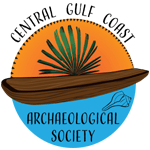Sea Changes: The Current State of Submerged Paleolandscape Prospection and Assessments, Inside and Outside the Private Sector
Dr. Jessica Cook Hale, University of Bradford, West Yorkshire, UK
Archaeologists once assumed that submerged, formerly terrestrial components of the shallow continental shelf retained little to no evidence of human occupations drowned by sea level rise over the last 20,000 years. Unfortunately, a great deal of human history must have played out in these regions, including episodes of human migration across the globe. The last forty years of submerged offshore discovery have proven this assumption to be wildly incorrect, however. Further, increasing development offshore is forcing a reckoning in world archaeology, challenging the discipline across the globe to develop new technologies and ethnologies for grappling with these sites. It is ever more critical that scientists and communities work together to identify and protect these priceless examples of shared cultural heritage. In this discussion, I will thus focus on the archaeological questions we ask and answer on the continental shelf here in the Western hemisphere, drawing upon my own work to share the details of such advances. My goal is to expand the community of those who both understand the necessity of this work as well as its best practices, including supporting increased awareness of regulations and policy that influence public and private sector decisions about these landscapes.
Dr. Jessica Cook Hale is a specialist in paleo landscape reconstruction. She is an associate scholar with the Aucilla Research Institute in Monticello, Florida and maintains scholarly affiliation with the Department of Geology at the University of Georgia. Dr. Cook Hale's research focuses on human responses in coastal environments to marine transgressions and climate change, primarily during the Middle and Early Holocene in the southeastern United States.
This monthly Archaeology Lecture series is co-sponsored by the Alliance for Central Gulf Coast Archaeological Society (CGCAS) and Weedon Island Archaeological Research and Education (AWIARE).


